'I'm fed up with being pooed on by kittiwake birds'
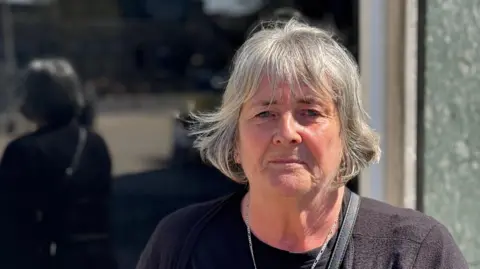 George King/BBC
George King/BBCSeasiders "fed up with being pooed on" by endangered kittiwakes say they are reluctant to go into their town centre in case a "big mess falls down from the sky".
The endangered birds have become synonymous with Lowestoft, in Suffolk, since first becoming a familiar sight at the piers at the entrance to the Port of Lowestoft in the 1950s.
In 2023, so-called 'kittiwake hotels' were even built to give young kittiwakes nesting in the town for the first time "a safe home" away from the hustle and bustle.
Some locals said the swooping seabirds continue to prove a problem but others defended them, saying they are an important coastal bird.
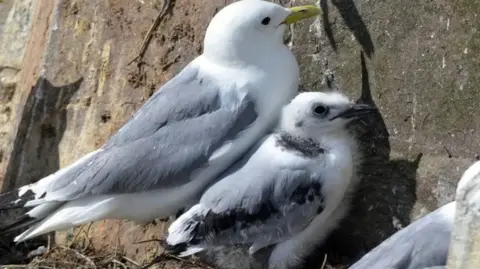 Adam Jones/Suffolk Wildlife Trust
Adam Jones/Suffolk Wildlife Trust"Everywhere you go there's just bird poop and it smells. They are noisy and they get on my nerves," said long-time Lowestoft resident, Chrissie Hatcher.
"It puts me off because it just makes the town dirty and I am fed up with being pooed on, especially when you are going out somewhere.
"I feel sorry for the holidaymakers because when I moved down here it wasn't like this because we had the fishing industry, so they were always out at sea."
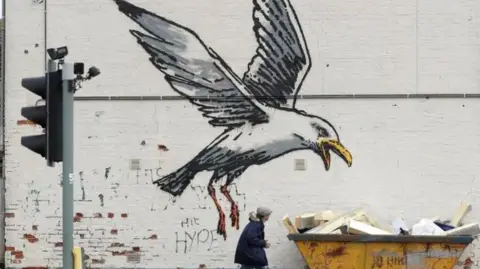 Getty Images
Getty Images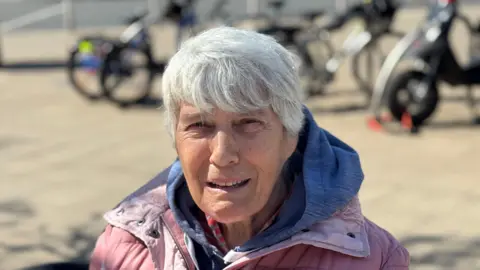 George King/BBC
George King/BBCSome have also said seabirds in the town can pose a physical danger, as they are often inclined to take things that do not belong to them – especially food.
"My daughter bought some doughnuts and she had just started eating them and a bird swooped down and was right near her face," said Jackie Dowding, 83.
"That was a bit frightening, so you have to be really, really, careful you are not eating because they are always looking for you.
"But, they do have a right to live and, if you are up in London you get nothing but pigeons' mess, so it is no different really, just different birds."
Richard Houghton, from the Lowestoft Seagull Action Group, said this type of "aggressive" behaviour was more likely to be displayed by a herring gull, which are also present in Lowestoft, as opposed to a kittiwake.
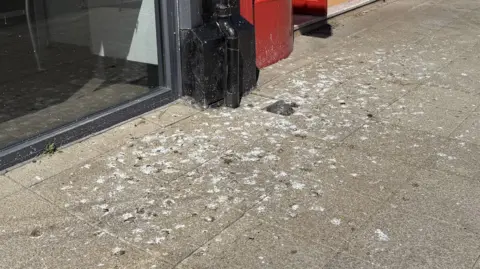 George King/BBC
George King/BBCKittiwakes are, however, proving problematic for some shops in the town centre, according to charity shop manager Bobby Jay.
"I would be lying if I said they haven't been a disturbance and some customers have made some quite negative comments about them," said the 27-year-old.
"I've had people refuse to come into the shop because they get two feet away from the door and a big mess falls down from the sky.
"I understand that can be quite intimidating and off-putting but they are here to stay and I actually quite enjoy their company - they are not really causing any issues."
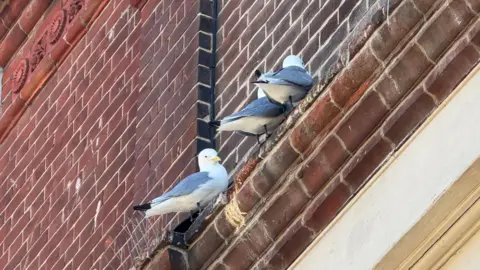 George King/BBC
George King/BBC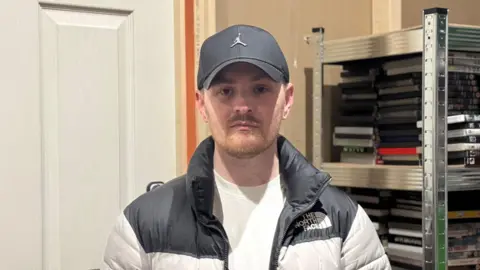 George King/BBC
George King/BBCGiven the global kittiwake population is thought to have dropped about 40% since the 1970s, Mr Jay believes it is "quite important" the town attempts to cater for them.
Steps were made towards fully embracing the gulls when bird hotels were built just off the coast by the energy firms Vattenfall and Scottish Power two years ago.
The structures were created with advice from environmental groups with the aim of keeping the birds safe from predators but also away from the town and harbour.
As a result, bosses at East Suffolk Council say Lowestoft is now home to one of the UK's most successful urban kittiwake colonies.
Lowestoft day-tripper Bob Webb, 65, believes residents should make more of an effort to embrace and live amicably alongside them.
"Kittiwakes are a really important coastal bird and this particular population is just trying to find places to roost, but lots of their traditional grounds have gone," he said.
"They need to be near food, because they've got to fly out to fish and bring it back to the nest.
"They're just trying to adapt and humans and birds have got to live together at some point."
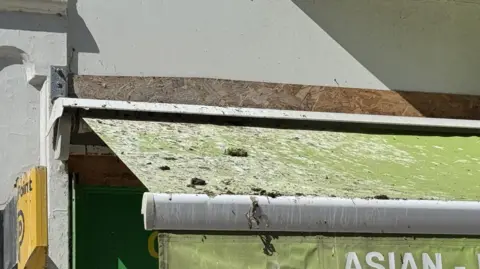 George King/BBC
George King/BBC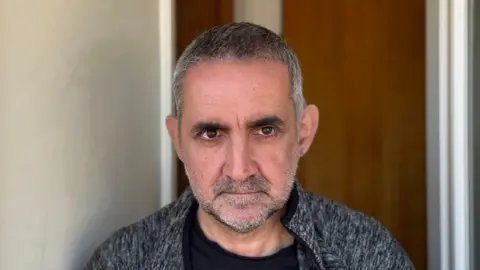 George King/BBC
George King/BBCAccording to the Wildlife Trust, there are 380,000 pairs of kittiwakes in the UK, and the hotels in Lowestoft can accommodate up to 430 pairs of them.
Andy Pearce is a Lowestoft town councillor and also part of the Lowestoft Kittiwake Partnership, which "seeks to safeguard nesting birds while reducing conflict with businesses and building owners in the town".
"They appear to be doing well in Lowestoft because in other places they are on the decline, so that is important," he said.
"I do welcome the fact they are here but I do appreciate that when you live on the doorstep with the noise, the mess, and the smell, it is a challenge.
"The Lowestoft Kittiwake Partnership is trying to work with other stakeholders to find a way for birds and people to live side-by-side without conflict.
"We do need to put extra cleaning in to deal with the extra mess and, as much as I like them, I don't want to tell people to suck it up and put up with it."
East Suffolk Council said it appreciated the "challenges associated with housing kittiwakes, including mess", but it was continuing to "coordinate regular pressure washing of public areas during the nesting season to support local people by managing the mess from kittiwakes and other birds".
Addressing the role of the 'kittiwake hotels', a spokesperson added: "The artificial nesting structures (ANS) in Lowestoft have been installed by offshore wind developers to offset the impact of wind farms on seabird populations.
"The ANS aren't designed to relocate the kittiwakes currently nesting in Lowestoft. Kittiwakes are faithful to their nests and return to the same site each year."
Follow Suffolk news on BBC Sounds, Facebook, Instagram and X.
